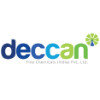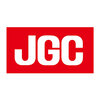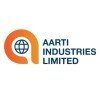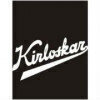Senior Process Engineer
30+ Senior Process Engineer Interview Questions and Answers

Asked in Deccan Fine Chemicals

Q. What method is used to determine the number of plates in a distillation column?
The number of plates in a distillation column can be found using the McCabe-Thiele method.
The McCabe-Thiele method involves constructing a graph of the distillation process and determining the number of theoretical plates required for separation.
The method takes into account the vapor-liquid equilibrium data and the reflux ratio of the column.
The number of plates can also be estimated using empirical correlations or simulation software.
The actual number of plates required may...read more
Asked in Lummus Technology Heat Transfer B.V.

Q. Where do you provide pressure and temperature breaks in P&IDs?
Pressure and temperature breaks are provided in P&IDs at critical points to ensure safety and prevent equipment damage.
Pressure and temperature breaks are typically provided at equipment such as pumps, compressors, and heat exchangers.
They are also provided at points where the process fluid changes phase, such as at the inlet and outlet of distillation columns.
Pressure and temperature breaks are indicated on P&IDs using symbols such as PSVs (pressure safety valves) and temper...read more

Asked in Chemplast Sanmar

Q. What experience do you have with process control?
I have experience in implementing and optimizing process control systems to improve efficiency and quality.
Implemented a PID control system for a chemical reactor to maintain temperature and pressure within desired ranges
Optimized a distillation process by implementing a feedback control system to maintain product purity
Developed and implemented a statistical process control system to monitor and improve the quality of a pharmaceutical manufacturing process

Asked in L&T Technology Services

Q. How do you calculate suction pressure, discharge pressure, and NPSH in a pump?
Suction pressure, discharge pressure, and NPSH in pumps are calculated using specific formulas and measurements.
Suction pressure is calculated by measuring the pressure at the pump inlet.
Discharge pressure is calculated by measuring the pressure at the pump outlet.
NPSH (Net Positive Suction Head) is calculated by subtracting the vapor pressure of the fluid from the total suction head.
Formulas: NPSH = (P_atm - P_vap) / (rho * g) + h_suction, where P_atm is atmospheric pressure...read more
Asked in Lummus Technology Heat Transfer B.V.

Q. How do you determine column pressure?
Column pressure is decided based on the desired separation and the properties of the feed mixture.
Consider the boiling points of the components in the feed mixture
Determine the desired degree of separation
Take into account the equipment limitations and safety factors
Perform simulations to optimize the column pressure
Adjust the pressure as needed during operation

Asked in Petrofac

Q. What are the pressure drop criteria for liquid and vapor phases in hydraulic calculations?
Pressure drop criteria for liquid and vapor phases are essential for accurate hydraulic calculations.
Pressure drop criteria for liquid phase typically range from 0.5-2 psi per 100 feet of pipe length.
Pressure drop criteria for vapor phase can vary depending on the specific application and design parameters.
Factors such as flow rate, pipe diameter, fluid properties, and equipment specifications must be considered when determining pressure drop criteria.
Pressure drop criteria a...read more
Senior Process Engineer Jobs




Asked in L&T Technology Services

Q. What will you do if you observe two-phase flow at the control valve outlet?
I would investigate the root cause of the two phase flow and take appropriate corrective actions.
Check for any blockages or restrictions in the control valve
Verify if the control valve is properly sized for the flow conditions
Consider adjusting the pressure or temperature to prevent two phase flow
Consult with other engineers or experts for further analysis
Implement changes to the control system if necessary
Asked in Pi Process Intensification Experts

Q. What are the steps to convert a batch process into a continuous process?
Converting a batch process into a continuous process involves several steps to ensure seamless transition and efficiency.
Evaluate the current batch process and identify areas for improvement
Design a continuous process flow that eliminates batch processing steps
Implement necessary equipment and automation to support continuous operation
Test the new continuous process to ensure reliability and efficiency
Optimize the continuous process based on feedback and data analysis
Share interview questions and help millions of jobseekers 🌟


Asked in Deccan Fine Chemicals

Q. What is Net Positive Suction Head?
Net Positive Suction Head (NPSH) is the difference between the absolute pressure at the suction of the pump and the vapor pressure of the liquid.
NPSH is a critical parameter in pump design and operation.
It determines whether the pump will cavitate or not.
Cavitation can cause damage to the pump and reduce its efficiency.
NPSH is affected by factors such as fluid properties, pump speed, and suction piping design.
NPSH can be calculated using various methods such as empirical equa...read more

Asked in Sunwoda Electronic India Pvt Ltd

Q. What ideas do you have to increase the company's productivity?
Implementing lean manufacturing principles and optimizing process flows.
Implementing a lean manufacturing system to reduce waste and increase efficiency.
Optimizing process flows to eliminate bottlenecks and reduce cycle times.
Investing in automation and technology to streamline operations.
Providing training and development opportunities to employees to improve skills and knowledge.
Encouraging employee engagement and involvement in continuous improvement initiatives.

Asked in Aibel

Q. What are PSV sizing tools, and how do they differ from Excel?
PSV sizing tools are specialized software for pressure safety valve calculations, unlike general-purpose Excel.
PSV sizing tools are designed specifically for pressure safety valve calculations, ensuring compliance with industry standards.
They incorporate fluid properties, flow conditions, and safety factors automatically, reducing manual input errors.
Examples include software like Aspen HYSYS, PV Elite, and AFT Fathom, which provide detailed analysis and reporting.
Excel can b...read more

Asked in Aarti Industries

Q. Explain the working principle of distillation and its troubleshooting methods.
Distillation is a process of separating components of a mixture based on their boiling points. Troubleshooting involves identifying and resolving issues with temperature, pressure, and flow rates.
Distillation separates components of a mixture based on their boiling points
The mixture is heated to vaporize the component with the lowest boiling point
The vapor is then condensed and collected as a separate liquid
Troubleshooting involves identifying and resolving issues with temper...read more

Asked in Deccan Fine Chemicals

Q. What is a dryer, and what are its different types?
A dryer is a device used to remove moisture or water content from a substance or material.
There are several types of dryers, including air dryers, rotary dryers, spray dryers, and freeze dryers.
Air dryers use hot air to remove moisture from materials.
Rotary dryers use rotating drums to dry substances.
Spray dryers use a spray nozzle to atomize liquid into a hot drying medium.
Freeze dryers freeze materials and then remove the ice by sublimation.
Other types of dryers include dru...read more

Asked in EPL Limited

Q. Do you have knowledge of measuring instruments like vernier calipers and micrometers?
Yes, I have extensive knowledge of measuring instruments like vernier calipers and micrometers, crucial for precision engineering.
Vernier calipers measure internal and external dimensions with a precision of 0.02 mm.
Micrometers are used for measuring small dimensions, typically with a precision of 0.01 mm.
Both instruments are essential for quality control in manufacturing processes.
For example, I used a micrometer to measure the thickness of a metal sheet in a recent project.

Asked in Mott MacDonald

Q. Can you provide examples where following a LOPA recommendation required you to make changes to a system?
Implemented changes to system based on LOPA recommendations
Modified relief valve settings to align with LOPA recommendations
Installed additional safety instrumentation as per LOPA findings
Adjusted process parameters to reduce risk levels identified in LOPA study

Asked in Deccan Fine Chemicals

Q. What is an agitated nutsche filter dryer?
An Agitated Nutsche Filter Dryer is a type of equipment used for solid-liquid separation and drying of pharmaceuticals, chemicals, and food products.
It is a batch filter with a mechanical agitation system
It is used for filtration, washing, and drying of solids
It is commonly used in the pharmaceutical industry for the production of antibiotics and other drugs
It is also used in the chemical industry for the production of pigments, dyes, and catalysts
It is designed to handle tox...read more

Asked in Sunwoda Electronic India Pvt Ltd

Q. what is FMEA, PDCA, POKA YOKA, 5W2H, ECRS, ECN, OEM, MES, ROUTE CAUSE ANALYSIS ETC
FMEA, PDCA, Poka Yoke, 5W2H, ECRS, ECN, OEM, MES, Root Cause Analysis are all tools and methodologies used in process engineering.
FMEA (Failure Mode and Effects Analysis) is a systematic approach to identify and mitigate potential failures in a process or product.
PDCA (Plan-Do-Check-Act) is a continuous improvement cycle used to solve problems and optimize processes.
Poka Yoke is a technique to prevent errors or mistakes by designing foolproof mechanisms or devices.
5W2H is a m...read more

Asked in EPL Limited

Q. How can your requirements be beneficial to our organization?
My requirement can bring extensive experience in process optimization and problem-solving to improve efficiency and productivity.
I have a proven track record of successfully implementing process improvements in previous roles.
My expertise in data analysis can help identify areas for optimization and cost reduction.
I am skilled in leading cross-functional teams to drive continuous improvement initiatives.
By leveraging my technical knowledge and industry experience, I can contr...read more


Q. Describe your experience designing jigs and fixtures for holding parts in a vehicle production shop.
Designing jigs and fixtures for holding parts in vehicle production shop is a crucial task for a Senior Process Engineer.
Understand the requirements of the production process and the parts to be held
Design jigs and fixtures that are easy to use and maintain
Ensure the jigs and fixtures are safe and comply with industry standards
Consider the cost and time required for manufacturing the jigs and fixtures
Test the jigs and fixtures to ensure they meet the desired specifications

Asked in Technip Energies

Q. Describe a situation where you implemented a solution to save energy.
Implemented energy-efficient lighting system in manufacturing plant
Conducted energy audit to identify areas for improvement
Replaced traditional lighting with LED fixtures
Installed motion sensors to automatically turn off lights in unoccupied areas
Asked in Pi Process Intensification Experts

Q. What is meant by residence time?
Residence time refers to the amount of time a substance remains in a particular system or reactor.
Residence time is crucial in chemical engineering processes to ensure proper reactions and conversions.
It is calculated by dividing the volume of the system by the volumetric flow rate of the substance.
For example, in a reactor, a longer residence time may lead to more complete reactions, while a shorter residence time may result in incomplete reactions.
Residence time can also im...read more
Asked in Sequoia Energy And Environment

Q. What is the difference between a centrifugal pump and a positive displacement pump?
Centrifugal pumps use rotating impellers to create flow, while positive displacement pumps use a mechanism to push fluid through a system.
Centrifugal pumps rely on centrifugal force to move fluid, while positive displacement pumps use mechanical force.
Centrifugal pumps are typically used for high flow rate, low viscosity applications, while positive displacement pumps are better for high viscosity fluids.
Examples of centrifugal pumps include water pumps in buildings, while po...read more

Asked in L&T Technology Services

Q. Explain the McCabe-Thiele Method for column sizing.
Mac ab theile Method is used for column sizing in chemical engineering.
Mac ab theile Method is an empirical method used to size distillation columns based on the number of theoretical stages required for separation.
It involves calculating the minimum reflux ratio required for separation and then determining the number of theoretical stages based on the operating line and equilibrium curve.
The method takes into account the feed conditions, product specifications, and the type ...read more

Asked in Zeta

Q. How do you select a pump?
Pumps are selected based on the required flow rate, head, type of fluid, operating conditions, and budget.
Consider the required flow rate and head for the application
Select a pump type suitable for the fluid being pumped (e.g. centrifugal pump for water)
Take into account the operating conditions such as temperature and pressure
Evaluate the budget constraints and choose a pump that meets the requirements within budget

Asked in Ingenero Technologies

Q. What is the difference between selectivity and conversion?
Selectivity is the ratio of desired product to undesired products, while conversion is the percentage of reactant converted to products.
Selectivity measures the efficiency of a reaction in producing the desired product.
Conversion measures the extent to which reactants are converted to products.
High selectivity indicates a high proportion of desired product, while high conversion indicates efficient use of reactants.
For example, in a reaction producing ethanol from ethylene, h...read more

Asked in PC Solutions

Q. Explain methods for increasing line efficiency.
Line efficiency can be increased through methods such as optimizing processes, reducing downtime, improving maintenance practices, and implementing automation.
Optimizing processes by identifying bottlenecks and implementing improvements
Reducing downtime by scheduling maintenance during off-peak hours
Improving maintenance practices to prevent breakdowns and delays
Implementing automation to streamline operations and reduce human error

Asked in L&T Technology Services

Q. How do you calculate the Cv for a control valve?
CV for a control valve can be calculated using the formula: CV = Q / (SG * sqrt(ΔP))
CV is the flow coefficient of the valve
Q is the flow rate in gallons per minute (GPM)
SG is the specific gravity of the fluid
ΔP is the pressure drop across the valve

Asked in Ingenero Technologies

Q. What is Reactor selectivity?
Reactor selectivity is the ability of a reactor to produce a desired product while minimizing the formation of undesired byproducts.
Reactor selectivity is a key factor in determining the efficiency of a chemical process.
It is influenced by factors such as reaction conditions, catalysts, and reactant concentrations.
For example, in a catalytic hydrogenation reaction, high selectivity would mean that the desired product is formed with minimal side reactions.

Asked in Synergy Process Systems

Q. How can you optimize the process?
Optimizing the process involves identifying inefficiencies, implementing improvements, and continuously monitoring performance.
Identify bottlenecks and areas of inefficiency in the process
Implement automation or technology upgrades to streamline operations
Optimize resource allocation to improve efficiency and reduce waste
Regularly monitor key performance indicators and adjust processes as needed
Involve cross-functional teams to brainstorm and implement process improvements

Asked in L&T Technology Services

Q. Tell me about PSV sizing.
PSV sizing is the process of determining the required size of pressure safety valves to protect equipment from overpressure.
PSV sizing involves calculating the relieving capacity required to protect equipment from overpressure events.
Factors such as maximum allowable working pressure, design pressure, and relieving pressure are considered in PSV sizing.
Codes and standards such as API 520 and API 521 provide guidelines for PSV sizing calculations.
PSV sizing may involve determi...read more
Interview Questions of Similar Designations
Interview Experiences of Popular Companies






Calculate your in-hand salary
Confused about how your in-hand salary is calculated? Enter your annual salary (CTC) and get your in-hand salary


Reviews
Interviews
Salaries
Users










